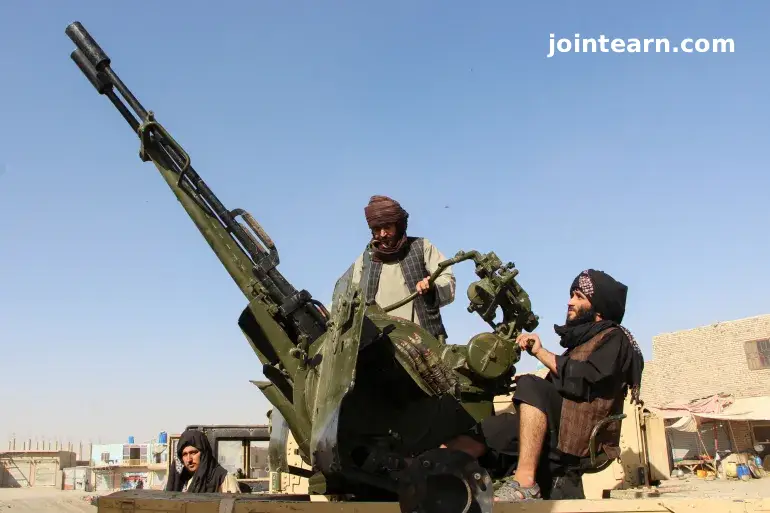
Islamabad, October 29, 2025 — The fragile peace efforts between Pakistan and Afghanistan have crumbled after four days of intense negotiations in Istanbul failed to produce any tangible breakthrough. The collapse of the dialogue, mediated by Qatar and Türkiye, underscores the growing mistrust and volatile dynamics between the two uneasy neighbours, both struggling to control the escalating violence along their shared border.
Pakistan’s Information Minister Attaullah Tarar announced the breakdown of talks early Wednesday, accusing the Afghan delegation of “deflection and ruses.” His statement on social media confirmed what analysts feared — that the dialogue had failed to generate a workable solution to contain the Tehreek-e-Taliban Pakistan (TTP) insurgency and prevent further border clashes.
Talks Break Down Despite Marathon Negotiations
According to Pakistani security officials, the discussions on Monday stretched for nearly 18 hours, yet yielded no progress on Islamabad’s central demand — that Kabul take decisive action against the TTP, a banned armed group responsible for hundreds of attacks in Pakistan. Officials claimed the Afghan delegation changed its stance multiple times under “instructions received from Kabul,” complicating efforts to reach a consensus.
The Taliban-led Afghan government, however, countered by accusing Pakistan of lacking coordination and clarity. Afghan state media reported that Islamabad’s representatives “kept leaving the negotiating table,” preventing the talks from advancing toward a structured outcome.
The breakdown comes just ten days after the Doha ceasefire agreement (October 19), which temporarily paused deadly skirmishes that left dozens of civilians and soldiers dead on both sides of the border.
Deepening Crisis and Looming Conflict
The failure of the Istanbul round has heightened fears of a wider regional conflict. Analysts describe the moment as a “last-ditch effort” gone wrong — one that might push Pakistan and Afghanistan toward open hostilities unless diplomatic intervention resumes swiftly.
Baqir Sajjad Syed, a former Wilson Center fellow and national security analyst, said the breakdown reflects “profound mutual distrust and conflicting priorities.” He noted that Pakistan’s demand to dismantle the TTP challenges the Afghan Taliban’s ideological alignment with the group.
“The Afghan Taliban depend on the TTP for internal security leverage,” Syed explained. “That ideological overlap makes it almost impossible for them to disown or suppress the group.”
A Complicated Partnership Unravels
For decades, Pakistan was viewed as the primary patron of the Afghan Taliban, providing support during their insurgency and celebrating their return to power in August 2021. But since then, relations have deteriorated sharply, largely due to the TTP’s resurgence inside Pakistan.
Formed in 2007, the TTP — or Tehreek-e-Taliban Pakistan — has waged a relentless campaign against the Pakistani state, targeting security personnel, police, and civilians. Islamabad accuses the Afghan Taliban government of sheltering TTP militants, along with other groups such as the Balochistan Liberation Army (BLA) and ISIL-K (Islamic State Khorasan Province). Kabul denies these allegations, arguing that Pakistan’s security woes are domestic in origin.
“The Afghan Taliban view the TTP as a Pakistani problem,” said analyst Ihsanullah Tipu Mehsud. “They are unlikely to turn their guns on them, as they share deep ideological and tribal ties.”
Regional Players Push for Restraint
The United States, China, Iran, Russia, and several Central Asian states have urged Kabul to curb militant activity within its borders. These appeals intensified after the Moscow consultations in early October, where Afghanistan’s Foreign Minister Amir Khan Muttaqi faced strong regional pressure to rein in extremist groups.
Meanwhile, US President Donald Trump, attending the ASEAN summit in Malaysia, claimed he could “solve the Afghanistan-Pakistan crisis very quickly.” However, regional observers doubt any external power can easily mediate a dispute driven by deep historical grievances.
Rising Violence Along the Frontier
Cross-border skirmishes have already claimed dozens of lives in recent weeks. Pakistan’s 2024 casualty toll — more than 2,500 deaths — marked one of its bloodiest years in a decade, and 2025 appears poised to surpass it. Most attacks have been concentrated in Khyber Pakhtunkhwa and Balochistan, where the TTP has stepped up operations.
According to the Armed Conflict Location & Event Data (ACLED) report, the TTP was involved in at least 600 attacks or clashes with Pakistani forces in the past year alone. Experts warn that Pakistan’s patience is thinning and that military retaliation could soon follow.
Islamabad’s Military Options — and Risks
Defence Minister Khawaja Asif has hinted at the possibility of “open war” if diplomatic efforts fail. Analysts believe Pakistan could resort to air strikes or targeted raids inside Afghan territory, similar to past operations against militant sanctuaries.
However, journalists Sami Yousafzai and Mehsud caution that such moves could backfire. “Any direct strikes would likely strengthen domestic support for the Taliban,” Yousafzai warned. “Civilian casualties could inflame anti-Pakistan sentiment across Afghanistan.”
He added that the Taliban’s supreme leader, Haibatullah Akhundzada, could potentially issue a fatwa declaring Jihad against Pakistan — a move that might draw thousands of Afghan youth into renewed conflict.
The Road Ahead: Diplomacy or Disaster?
Despite the failure in Istanbul, mediators Qatar and Türkiye are reportedly preparing to make one more “last-ditch push” to revive talks. There are also suggestions that the dialogue might shift to another neutral venue, possibly under expanded international mediation.
Analyst Syed believes that economic incentives or aid-linked agreements could be used to encourage restraint. “The threat of escalation is real, but the global community can still play a constructive role,” he said.
Still, with the Taliban’s historical resistance to external pressure and Pakistan’s growing frustration, prospects for a sustainable peace remain bleak.
📊 Key Takeaways
- Talks Fail: Pakistan-Afghanistan dialogue in Istanbul ends without agreement.
- Core Dispute: Islamabad demands Kabul act against TTP militants.
- Escalating Violence: Over 2,500 casualties recorded in 2024; 2025 could surpass that.
- Regional Mediation: Qatar, Türkiye, China, and Russia pushing for renewed diplomacy.
- Future Risk: Full-scale border conflict possible if dialogue collapses completely.


Leave a Reply